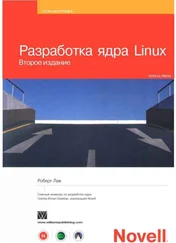syscall.c
/* syscall.c
*
* System call "stealing" sample
*/
/* Copyright (C) 1998-99 by Ori Pomerantz */
/* The necessary header files */
/* Standard in kernel modules */
#include /* We're doing kernel work */
#include /* Specifically, a module */
/* Deal with CONFIG_MODVERSIONS */
#if CONFIG_MODVERSIONS==1
#define MODVERSIONS
#include
#endif
#include /* The list of system calls */
/* For the current (process) structure, we need
* this to know who the current user is. */
#include
/* In 2.2.3 /usr/include/linux/version.h includes a
* macro for this, but 2.0.35 doesn't - so I add it
* here if necessary. */
#ifndef KERNEL_VERSION
#define KERNEL_VERSION(a,b,c) ((a)*65536+(b)*256+(c))
#endif
#if LINUX_VERSION_CODE >= KERNEL_VERSION(2,2,0)
#include
#endif
/* The system call table (a table of functions). We
* just define this as external, and the kernel will
* fill it up for us when we are insmod'ed */
extern void *sys_call_table[];
/* UID we want to spy on - will be filled from the command line */
int uid;
#if LINUX_VERSION_CODE >= KERNEL_VERSION(2,2,0)
MODULE_PARM(uid, "i");
#endif
/* A pointer to the original system call. The reason
* we keep this, rather than call the original function
* (sys_open), is because somebody else might have
* replaced the system call before us. Note that this
* is not 100% safe, because if another module
* replaced sys_open before us, then when we're inserted
* we'll call the function in that module - and it
* might be removed before we are.
*
* Another reason for this is that we can't get sys_open.
* It's a static variable, so it is not exported. */
asmlinkage int (*original_call)(const char *, int, int);
/* For some reason, in 2.2.3 current->uid gave me
* zero, not the real user ID. I tried to find what went
* wrong, but I couldn't do it in a short time, and
* I'm lazy - so I'll just use the system call to get the
* uid, the way a process would.
*
* For some reason, after I recompiled the kernel this
* problem went away.
*/
asmlinkage int (*getuid_call)();
/* The function we'll replace sys_open (the function
* called when you call the open system call) with. To
* find the exact prototype, with the number and type
* of arguments, we find the original function first
* (it's at fs/open.c).
*
* In theory, this means that we're tied to the
* current version of the kernel. In practice, the
* system calls almost never change (it would wreck havoc
* and require programs to be recompiled, since the system
* calls are the interface between the kernel and the processes). */
asmlinkage int our_sys_open(const char *filename, int flags, int mode) {
int i = 0;
char ch;
/* Check if this is the user we're spying on */
if (uid == getuid_call()) {
/* getuid_call is the getuid system call,
* which gives the uid of the user who
* ran the process which called the system
* call we got */
/* Report the file, if relevant */
printk("Opened file by %d: ", uid);
do {
#if LINUX_VERSION_CODE >= KERNEL_VERSION(2,2,0)
get_user(ch, filename+i);
#else
ch = get_user(filename+i);
#endif
i++;
printk("%c", ch);
} while (ch != 0);
printk("\n");
}
/* Call the original sys_open - otherwise, we lose
* the ability to open files */
return original_call(filename, flags, mode);
}
/* Initialize the module - replace the system call */
int init_module() {
/* Warning - too late for it now, but maybe for next time... */
printk("I'm dangerous. I hope you did a ");
printk("sync before you insmod'ed me.\n");
printk("My counterpart, cleanup_module(), is even");
printk("more dangerous. If\n");
printk("you value your file system, it will ");
printk("be \"sync; rmmod\" \n");
printk("when you remove this module.\n");
/* Keep a pointer to the original function in
* original_call, and then replace the system call
* in the system call table with our_sys_open */
original_call = sys_call_table[__NR_open];
sys_call_table[__NR_open] = our_sys_open;
/* To get the address of the function for system
* call foo, go to sys_call_table[__NR_foo]. */
printk("Spying on UID:%d\n", uid);
/* Get the system call for getuid */
getuid_call = sys_call_table[__NR_getuid];
return 0;
}
/* Cleanup - unregister the appropriate file from /proc */
void cleanup_module() {
/* Return the system call back to normal */
if (sys_call_table[__NR_open] != our_sys_open) {
printk("Somebody else also played with the ");
printk("open system call\n");
printk("The system may be left in ");
printk("an unstable state.\n");
}
sys_call_table[__NR_open] = original_call;
}
Что Вы делаете, когда кто-то просит Вас о чем-то, что Вы не можете сделать сразу же? Если вы человек, и вы обеспокоены, единственное, что Вы можете сказать: «Не сейчас, я занят.». Но если вы модуль, Вы имеете другую возможность. Вы можете поместить процесс в спячку, чтобы он бездействовал, пока Вы не сможете обслужить его. В конце концов, процессы помещаются в спячку и пробуждаются ядром постоянно.
Этот модуль является примером этого подхода. Файл (названный /proc/sleep) может быть открыт только одним процессом сразу. Если файл уже открыт, модуль называет module_interruptible_sleep_on [7] Самый простой способ держать файл открытым состоит в том, чтобы открыть его tail -f.
. Эта функция изменяет состояние задачи (задача является структурой данных в ядре, которая хранит информацию относительно процесса и системного вызова) в состояние TASK_INTERRUPTIBLE, что означает, что задача не будет выполняться пока не будет пробуждена так или иначе, и добавляет процесс к WaitQ, очереди задач ждущих, чтобы обратиться к файлу. Затем функция обращается к планировщику за контекстным переключателем другого процесса, который может использовать CPU, то есть управление передается другому процессу.
Читать дальше





![Елена Правдина - Говорят, в IT много платят. Как построить успешную карьеру разработчика, оставаться востребованным и не выгорать [litres]](/books/436529/elena-pravdina-govoryat-v-it-mnogo-platyat-kak-pos-thumb.webp)

